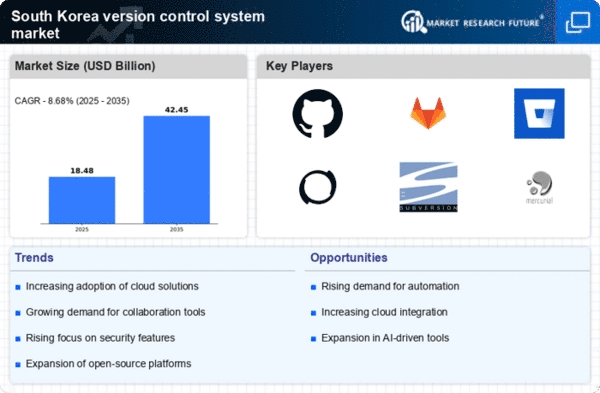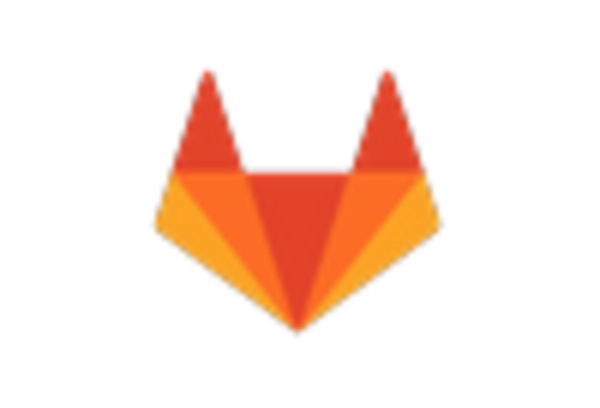Emergence of DevOps Practices
The integration of DevOps practices within organizations is reshaping the version control-system market in South Korea. DevOps emphasizes collaboration between development and operations teams, fostering a culture of continuous integration and delivery. This shift necessitates advanced version control systems that can seamlessly integrate with other tools in the DevOps pipeline. As companies increasingly adopt DevOps, the demand for version control solutions that support automation and streamline workflows is likely to grow. Current estimates indicate that the DevOps market in South Korea is expanding at a rate of 20% annually, suggesting a strong correlation with the version control-system market as organizations seek to enhance their operational efficiency.
Growing Focus on Agile Methodologies
The version control-system market is significantly influenced by the increasing adoption of agile methodologies among software development teams in South Korea. Agile practices emphasize iterative development, flexibility, and rapid delivery, which necessitate robust version control systems to manage code changes effectively. As organizations strive to improve their development cycles, the demand for tools that support agile workflows is expected to rise. Recent statistics suggest that agile adoption in South Korea has surged to over 60% among software teams, creating a favorable environment for version control solutions that align with these methodologies. This trend indicates a potential for growth in the market as companies seek to enhance their development processes.
Regulatory Compliance and Data Governance
The version control-system market is increasingly influenced by the need for regulatory compliance and data governance in South Korea. As industries face stricter regulations regarding data management and security, organizations are compelled to adopt version control systems that ensure compliance with these standards. This trend is particularly evident in sectors such as finance and healthcare, where data integrity is paramount. Recent surveys indicate that over 70% of companies in these sectors are prioritizing compliance in their software development processes. Consequently, the demand for version control solutions that offer robust security features and audit trails is likely to rise, positioning the market for substantial growth as organizations seek to mitigate risks associated with non-compliance.
Rising Demand for Collaborative Development
The version control-system market in South Korea is experiencing a notable increase in demand for collaborative development tools. As software development teams become more distributed, the need for systems that facilitate real-time collaboration is paramount. This trend is reflected in the growing adoption of platforms that allow multiple users to work on code simultaneously, enhancing productivity and reducing errors. According to recent data, the market for collaborative software tools is projected to grow by approximately 15% annually, indicating a robust appetite for solutions that support teamwork. This shift is likely to drive innovation within the version control-system market, as providers enhance their offerings to meet the evolving needs of developers.
Increased Investment in Software Development
The version control-system market is benefiting from a surge in investment in software development across various sectors in South Korea. As businesses recognize the importance of digital transformation, they are allocating more resources to enhance their software capabilities. This trend is reflected in the increasing budgets for IT and software development, which have risen by approximately 25% over the past year. Such investments are likely to drive the demand for sophisticated version control systems that can support complex development projects. As organizations seek to optimize their software development processes, the version control-system market is poised for growth, driven by the need for effective management of code and collaboration.
















